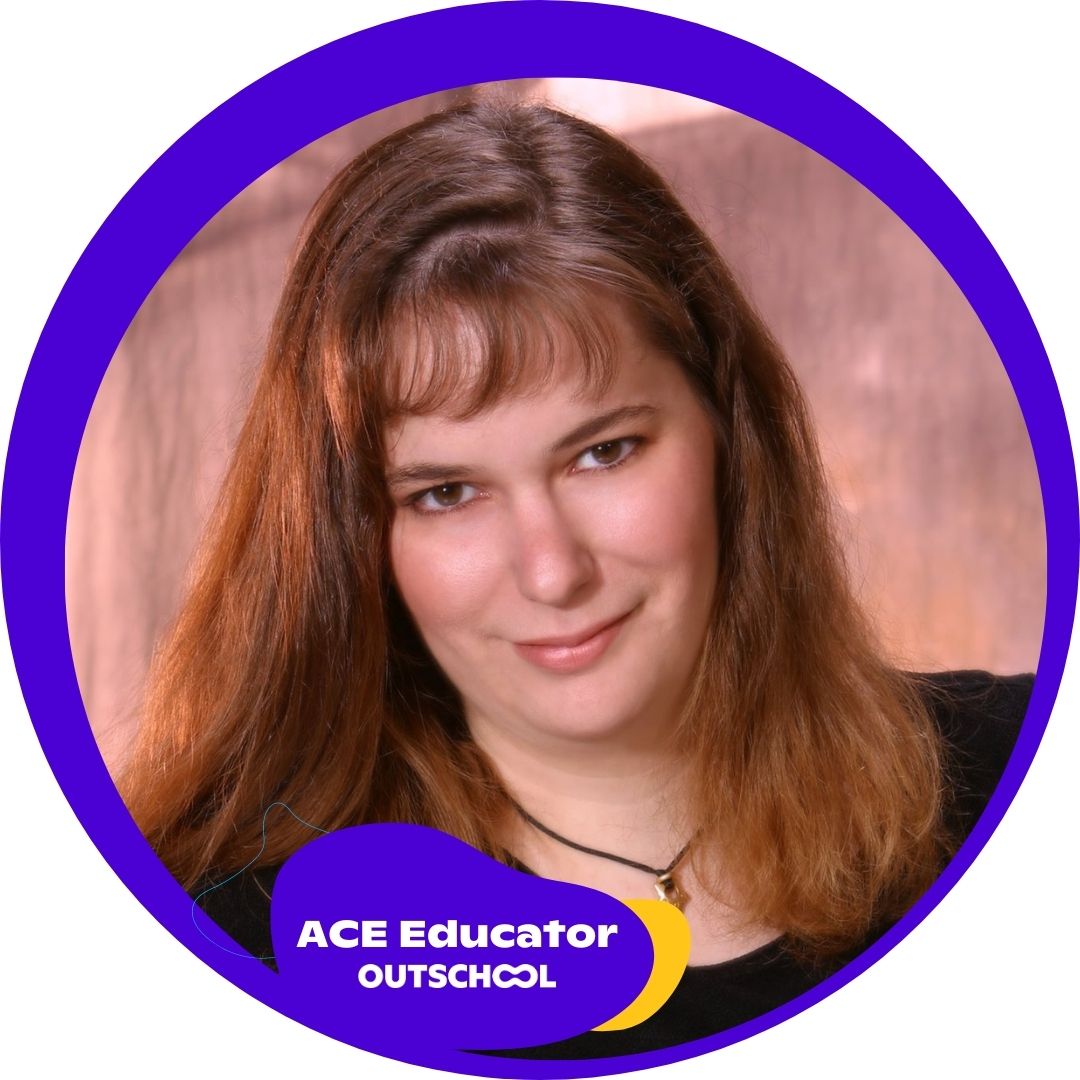Outschool ACE Educator Status Granted to Christina White, Owner of Air & Ink Studio

Outschool
ACE Educator
In 2022, Outschool created the Outschool ACE Educator framework for their educators to help them build upon their skills and strategies. Outschool’s goal was to help us educators create classroom experiences that inspire confidence, curiosity, and connection for all the learners on the platform. As a lifelong learner and someone who strives to continually improve upon my teaching practices, I was happy to take advantage of the opportunities. In order to gain ACE status, I participated in several professional development training sessions and wrote a reflection discussing the session and how I would integrate the information into my online classroom and lesson studio.
The ACE Educator off Outschool
While this process was geared towards the Outschool platform, the work that I completed applies universally to my teaching practice, for both adults and children. I focused on working with gifted and neurodiverse learners and updating my practices to create a better and safer learning space for LGBTQ+ students.
The Three Pillars of the Outschool ACE Educator Framework
Agency
The Agency pillar’s core values already wind their way through how I teach music and art. This ACE framework pillar emphasizes the diverse ways that learners take in information. I was lucky enough to attend a talk given by Marc Smolowitz, the director and producer of the film The G Word. During this presentation, Smolowitz discussed what he learned about gifted and neurodiverse learners while working on his film. He debunked several myths about folks who fall into this category and offered ideas on how to engage them in learning.
This topic is near and dear to my heart. Many of my students are neurodiverse individuals, gifted, or both. I’ve learned how to engage folks who think about and process information differently. Setting all of my students up for success is my number one goal – how that happens often looks very different from one student to the next. Smolowitz’s presentation reinforced many of the things I already knew and gave me a few new ideas to try.
Community
The ACE framework pillar of Community focuses on connection – teacher to learner as well as learner to learner. It creates a sense of safety so learners can be themselves. That safety helps foster their love of learning. For this pillar, I attended a presentation given by the Trevor Project.
Musicians and artists often march to the beat of their own drummer. Creativity lends itself to unique identities and expression. In high school, the choir room was my haven – you could be yourself without judgement. Some of my friends felt the same way in the theater department or the art room. I strive to provide that same feeling in my private studio and group classes. The Trevor Project presentation helped me update my vocabulary, and more importantly, gave me perspective about what my students might be working through or dealing with. These perspectives help me provide a safe and inclusive space for all of my students.
Expertise
The ACE framework pillar of Expertise isn’t about my expertise, but how to help students gain their own. All three of these pillars feed into one another, but in many ways, I feel that Agency and Community roll up into Expertise. Expertise means providing an inclusive space for diverse learners and differentiating my teaching to accommodate everyone’s needs. For Expertise, I attended a program put on by the Rhode Island chapter of National Association of Teachers of Singing (NATS) that discussed trans and non-binary voices.
The NATS presentation overlapped the Trevor Project. Some of their presentation focused on vocabulary, how to create a safe learning space, etc. They then extended these ideas into the voice studio. This presentation built on the research that I have already done on this subject and I came away with new ideas and some updated language. Most importantly, it furthered my understanding of these unique voices and how I can best serve them.
Now what?
Good question. My areas of focus regularly evolve and change. That means that I must as well or I won’t be able to meet my students needs. While I have completed the work towards getting a little frame around my Outschool profile picture, I am not done learning about these topics. I look forward to future learning opportunities.
To learn more about the Outschool ACE Framework, visit their Educator Library. See me in action in my private voice studio and with my art and music classes for kids (on Outschool).




